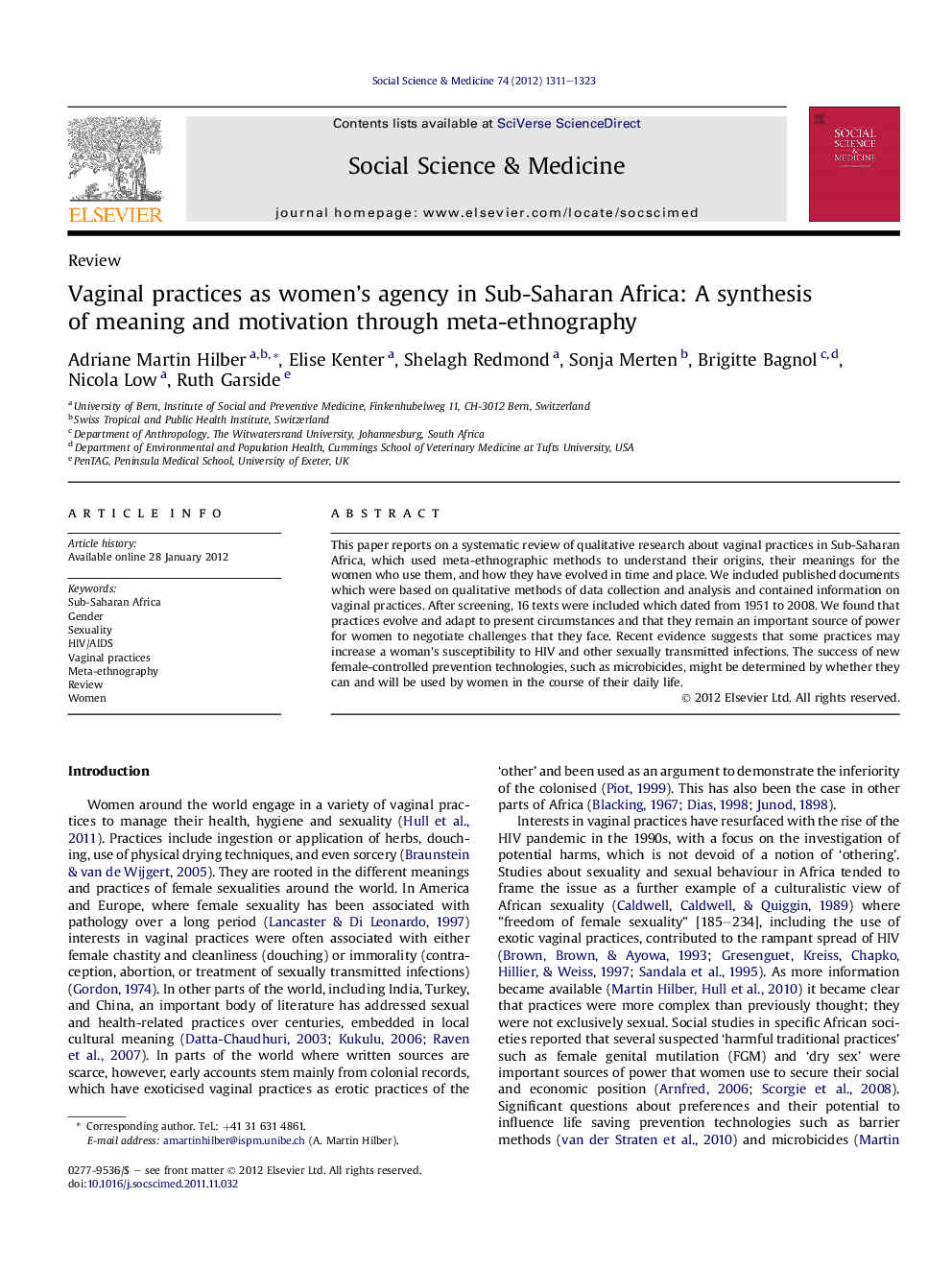| Article ID | Journal | Published Year | Pages | File Type |
|---|---|---|---|---|
| 952493 | Social Science & Medicine | 2012 | 13 Pages |
This paper reports on a systematic review of qualitative research about vaginal practices in Sub-Saharan Africa, which used meta-ethnographic methods to understand their origins, their meanings for the women who use them, and how they have evolved in time and place. We included published documents which were based on qualitative methods of data collection and analysis and contained information on vaginal practices. After screening, 16 texts were included which dated from 1951 to 2008. We found that practices evolve and adapt to present circumstances and that they remain an important source of power for women to negotiate challenges that they face. Recent evidence suggests that some practices may increase a woman's susceptibility to HIV and other sexually transmitted infections. The success of new female-controlled prevention technologies, such as microbicides, might be determined by whether they can and will be used by women in the course of their daily life.
► Meta-ethnography shows that, in Sub-Saharan Africa, vaginal practices are continuously being reinvented in time and place. ► Vaginal practices are used to negotiate social, economic and relationship challenges in women's lives. ► Modern renditions of local practices appear to remain important sources of power for women. ► Recent evidence suggests that some vaginal practices might increase women's susceptibility to HIV in Sub-Saharan Africa. ► Efforts to change potentially harmful practices will require attention to their role as a survival strategy for women.
